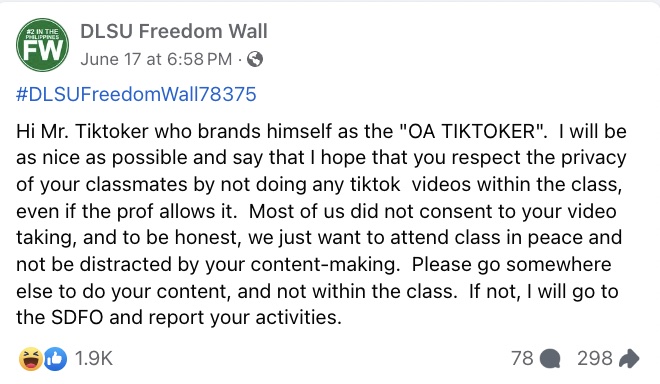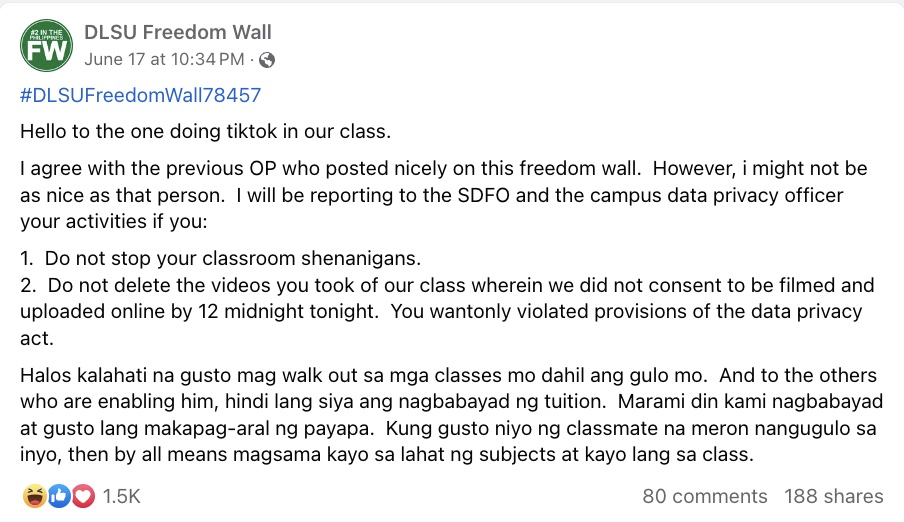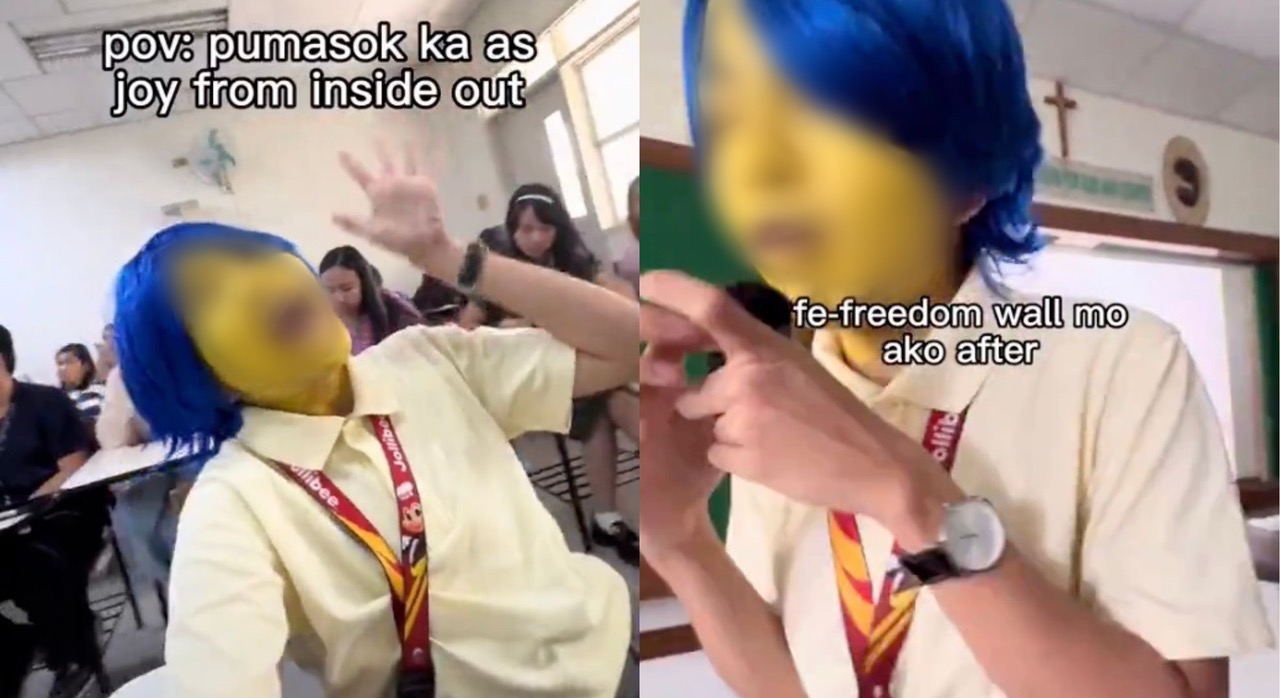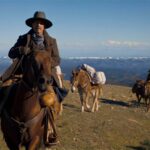In an increasingly digital age, the boundaries between personal space and public sharing are becoming blurred, leading to conflicts in various social settings. Recently, a TikTok content creator, known for his ‘OA’ (Overacting) persona, has come under fire from his peers at De La Salle University (DLSU). The backlash stems from his disruptive behavior in classrooms, which has sparked a debate on privacy and consent in the digital era.
@nathanportezDISHWASHING LIQUID♬ original sound – Nathan Portez
The controversy began with two anonymous posts on the DLSU Freedom Wall, a platform for students to express their concerns and opinions freely. The initial post, labeled #DLSUFreedomWall78375, politely requested the TikToker to cease recording videos during class time. The anonymous poster emphasized the lack of consent from classmates and expressed a desire for an undisturbed learning environment.

This post was quickly followed by a more aggressive response (#DLSUFreedomWall78457), which threatened formal complaints to the Student Discipline Formation Office (SDFO) and the campus data privacy officer if the TikToker did not stop his classroom activities and delete the existing videos.

A Twitter user also saw the content and questioned the student’s behavior. “Kelangan pati time na nagkaklase nagvvlog? [Does he really need to vlog even during class time?]” he wrote.
Nakakainis tong mga ganitong papansin. Like kelangan pati time na nagkaklase nagvvlog? https://t.co/bvLTpARMOl
— ijbolistan (@chromaticccaaa) June 15, 2024
The posts quickly gained traction on social media, eliciting a slew of comments from users who mostly condemned the TikToker’s actions.
“Well HE’S NOT EVEN FUNNY. SOBRANG PAPANSIN [Well, He’s not even funny. Attention-seeker.]” commented one user, reflecting the general sentiment of annoyance and frustration.
Another user questioned the professors’ leniency: “I don’t understand why the profs would allow this during class.”
“I’ve always wondered how his classmates feel about him lol. Pansin ko kasi sa vids nya na [I noticed in his videos that] they are not entertained or like they don’t want to participate in it,” observed another, noting the apparent disinterest and discomfort of the classmates featured in the videos.
“Tbh parang siya pinaka squammy na la sallian na nakita ko idk kahit sa mga la sallian provinces wala namang ganon [he seems to be the most ‘squammy’ La Sallian I’ve ever seen, I don’t know, even in La Sallian provinces, there’s nothing like that,” added a user, highlighting a perceived deviation from typical student behavior at DLSU],” added a user, highlighting a perceived deviation from typical student behavior at DLSU.
This incident underscores the growing concerns about privacy in an era where digital content creation is ubiquitous. The Data Privacy Act of 2012 in the Philippines mandates that individuals must consent to being recorded and that their privacy must be respected. The TikToker’s actions, as described, could potentially violate these provisions, leading to legal repercussions.
As universities navigate the integration of digital platforms into academic settings, establishing clear guidelines and enforcing them becomes crucial to protect students’ rights and maintain a conducive learning environment. This incident at DLSU serves as a reminder of the importance of balancing content creation with respect for privacy and consent.
Other POP! stories that you might like:
Actress Shay Mitchell seemingly denies Filipino roots by claiming she’s ‘half Spanish,’ gets blasted
MAMAMOO’s Solar surprises fans with performance of BINI’s ‘Pantropiko’
‘Will vlogging be dead in the next few years?:’ Insights from content creator spark debate



